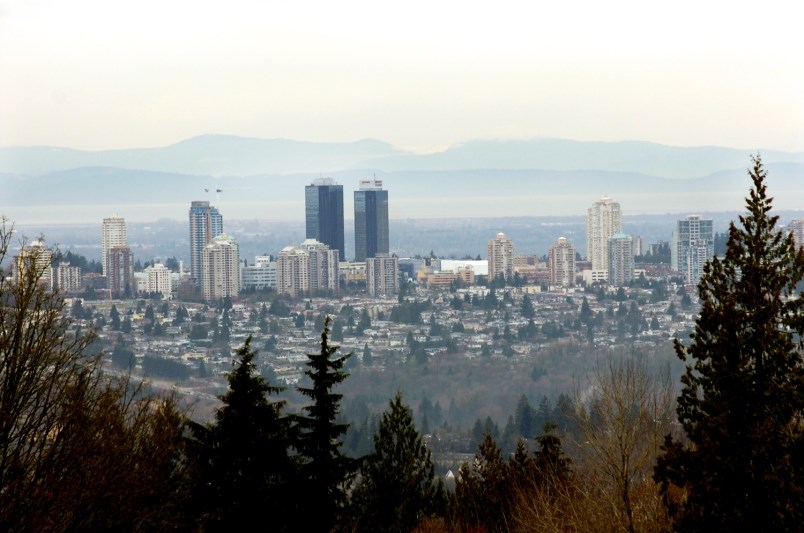Burnaby has B.C.’s worst rental market, according to the BC Non-profit Housing Association, which ranked the municipality 72 of 72 in the province using supply and affordability data from the 2016 census.
The housing crisis is hitting renters harder here than arguably anywhere else. But local politicians say they have plans to make things better.
All three parties and independent mayoral candidate Mike Hurley have released housing platforms they say will address housing affordability in Burnaby.
While the candidates hope to earn your vote Oct. 20, several have acknowledged that they’re not wizards, saying “no city has found a magic bullet” (Derek Corrigan), “there is no one magic wand or quick fix,” (Hurley), and “there is no magic fix” (Burnaby First).
Burnaby Citizens Association
The BCA, which currently holds all seats on council, is running on this slogan: “Trusted leadership. Delivered for Burnaby.” That’s how they hope voters see them on the housing file, as they tout their record over the last several years.
Mayor Derek Corrigan and his fellow party members have repeatedly denied charges from their critics that they could have done more to prevent demovictions in Metrotown and protect rental apartments in the area. The city saw a net loss of 712 rental units from 2010 to 2017 while other Metro Vancouver municipalities gained hundreds, according to the Canada Mortgage and Housing Corporation.
But Corrigan has remained firm in laying blame for the housing crisis at the feet of the provincial and federal government. And, he said, cities like Vancouver have only been able to create new rental units by incentivizing developers to build “market rental housing that isn’t affordable.”
The BCA promises to continue with its plan to be the first municipality in B.C. to implement rental zoning powers granted by the province earlier this year. They say developers will have to replace rental apartments they demolish with new rental units on a one-to-one basis, with displaced tenants offered first refusal.
The party also promised to consult with the community and consider allowing laneway homes and secondary suites in duplexes.
The BCA also said it may follow in the City of Vancouver’s footsteps by implementing an empty-homes tax and regulating short-term rentals (such as Airbnb).
Mike Hurley
Hurley has put housing, and especially Metrotown demovictions, at centre of his campaign to take the mayor’s chair from Corrigan. He was the first to release a housing platform a month ago and has flogged it on doorsteps across the city ever since.
As mayor, Hurley said he would place a moratorium on any not-yet-approved developments that would displace renters. He vowed to then work on a myriad of possible solutions to house displaced renters, even suggesting the city may buy buildings as temporary home for them.
The rest of Hurley’s platform is short on concrete promises but long on ideas he vows to explore, study and consider “because I don’t pretend to be the expert on housing,” he said.
He vows to strike a task force that will first provide interim recommendations, followed by a final report within six months. The task force will look at streamlining zoning and permit processes, the need for a local housing authority, land trusts, how to spend the city’s roughly $90 million housing fund, a speculation tax and the possible use of new forms of housing.
Like Corrigan, Hurley promises to consider allowing laneway homes and more secondary suites in the city.
Burnaby First Coalition
BFC has also been highly critical of the current council’s policies that have displaced renters in Metrotown. “The term ‘demoviction’ is synonymous with Burnaby,” their platform says.
The party, which is running six council candidates, says its members will vote against any development that can’t prove there are “suitable and sufficient equivalent homes available” for displaced renters.
“We will not create an exodus or contribute to homelessness,” BFC says.
When it comes to laneway homes, the party is a little bolder than the BCA and Hurley. The BFC platforms says its members would allow laneway homes so long as there is sufficient parking and no “detriments” to neighbours.
The party also vows to make subdividing easier and remove a utility surcharge on homes with a second suite.
The BFC rejects the BCA proposal to tax and regulate short-term rentals, saying the party’s policies “seem to be dominated with themes of anti-capitalism.”
Green Party
The local Green party – fielding six council candidates and endorsing Mike Hurley for mayor – repeats many of the themes seen in other housing platforms, but also offers some unique ideas to the race.
Elected Greens would work to end homelessness and displacement, enact standards of maintenance bylaws for rentals and push for a moratorium on demovictions and evictions of tenants, they say.
The party has also doubled a previously announced campaign promise, saying it would invest at least $20 million a year into affordable rentals and co-op housing.
The Green platform also calls for an end to supplementary density zoning, a bylaw amendment via which the city has offered increased density to developers in exchange for cash and amenities.
Green councillors would also consider tiny, laneway and modular homes, they say.
Finally, the Greens want to create an “Independent Housing Ombudsperson Office” at City Hall.



